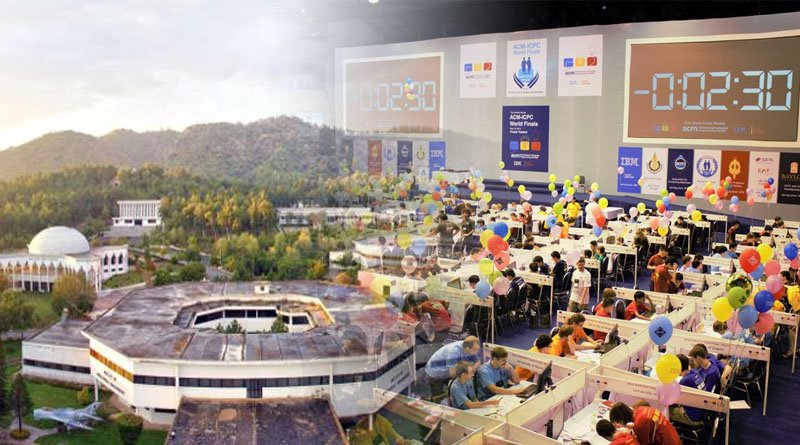Regional Director ICPC, said that a total of 67 teams from Pakistan, India, Iran, Bangladesh and Afghanistan were shortlisted for the contest while 58 could finally make it to the contest.

The first International Collegiate Programming Contest (ICPC) Asia West Finals were held in Pakistan at the Ghulam Ishaq Khan Institute of Engineering Sciences and Technology.
Dr. Masoor, regional director of the ICPC, told reporters on Wednesday that a total of 67 teams from Pakistan, India, Iran, Bangladesh, and Afghanistan had been shortlisted for the competition, with 58 making the cut.
The contest featured four teams from the ICPC Asia Topi Regional site, three of which were from Pakistan, and one international team from Kateb University in Afghanistan.
Pakistan was represented in the competition by teams from the GIK Institute, the Foundation for Advancement of Science and Technology, the National University of Computer and Emerging Sciences (FAST-NUCES), Karachi, and FAST-NUCES, Islamabad.
“The University of Dhaka, Bangladesh, won first place in the final competition. The Indian Institute of Technology in Madras, India, took second place. The third prize went to the Bangladesh University of Engineering and Technology. Team Pentateuch from the GIK Institute and Team Trojans 1 from FAST-NUCES Karachi did a good job solving multiple problems,” said Sarah Sajjad, Manager ICPC Pakistan.
Dr. Hussain stated that for the first time, a Pakistani team was able to solve an international problem. Ayesha Siddiqa, Software Engineer, Noon Dubai Company, was also chosen as a problem solver for the Asia West Contest. Previously, India, Bangladesh, and Iran dominated.
Three Afghan students who took part in ICPC stated that there was no other option but education and that only contemporary knowledge could change the destiny of war-ravaged Afghanistan.
Three students—Lalee Mohammad Mahdi, Farhadi Ali Tareq, and Soltani Rahmat—participated in the International Collegiate Programming Contest (ICPC) Asia West Finals at the GIK Institute, led by official Mohammad Qasim Hussaini.
Dr. Masroor stated that there was no shortage of talent in Afghanistan. Other participants stated that such gatherings help bring nations together, allowing them to work for peace and economic prosperity.